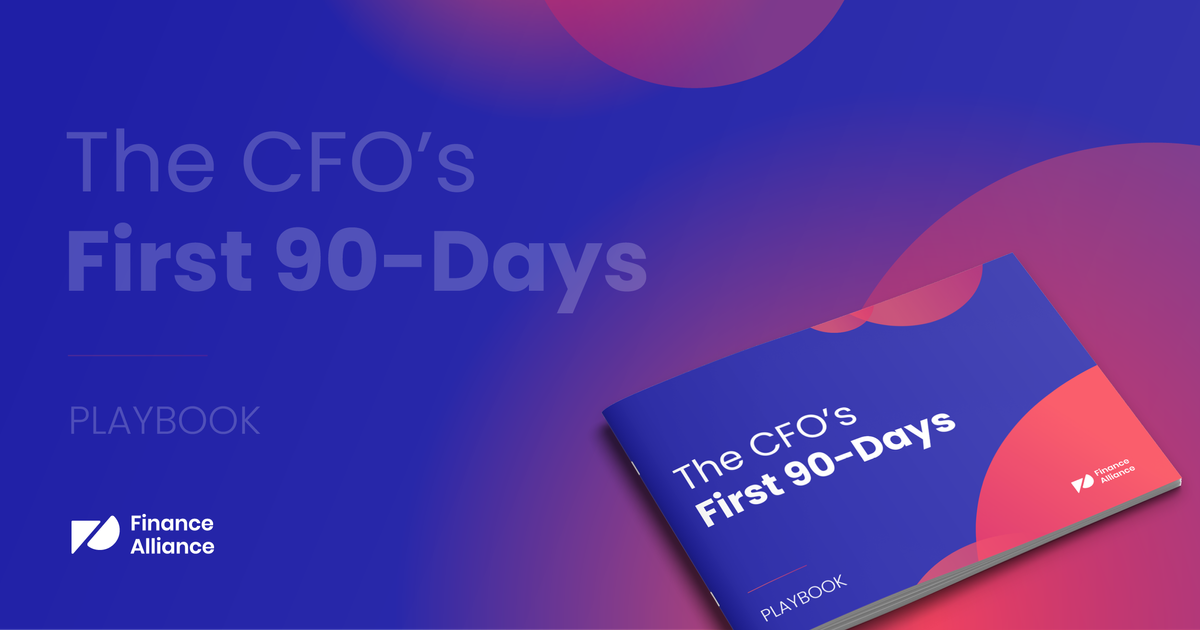A finance director is a senior board member who’s responsible for managing a company’s finances. They use their experience and financial know-how to advise on spending, making sure everything aligns with the company’s larger objectives.
But what does a finance director do? And how do you know if the position is right for you?
In this career guide, we take you through all the major pillars of this role, including:
...and more. So, let’s dive in. 👇
Key takeaways
- A finance director's main purpose is to oversee the financial health of a company.
- An MBA is not mandatory for finance directors, but it can be a big competitive advantage.
- 5-10 years of experience is typical for this role.
What does a finance director do?
Alright, let’s get to the core question – what does a finance director do?
A financial director juggles a lot of different responsibilities, but it all comes down to one main goal - ensuring the financial stability of the company.
To do this, they provide guidance to help the company meet its financial commitments while attaining its overarching goals.
The finance director will also head the development of policies and procedures to uphold financial management and control over the company's business operations.
Responsibilities
The responsibilities of a finance director may differ from one company or industry to another, but their main duties tend to cover:
- Creating budgets that meet the needs of each department.
- Building annual financial plans and forecasts.
- Offering advice and guidance to executives on financial decisions.
- Examining potential financial risks and gains for business initiatives.
- Assessing possible investment opportunities.
- Providing funds for capital projects and keeping financials in check with the Facilities Director (if there is one).
- Managing the company’s financial operations.
- Supervising the creation of the company's financial records to make sure they’re presented on time and accurately.
- Overseeing and facilitating training for accountants on staff.
- Performing weekly and monthly financial evaluations and creating reports for senior management.
- Conducting recurring financial reviews.
Skills
Here’s a simple overview of some key finance director skills:

As you can see, there are quite a lot of skills that potential employers will expect you to have. For example, you need to have a firm understanding of all things finance and accounting (no surprises there).
Beyond the numbers though, you’ll need excellent business acumen and strategy skills. This is because as a finance director, you’ll often map out long-term money strategies that’ll keep the company heading in the right direction.
Leadership is huge too. As head of the finance team, you’re responsible for motivating and guiding them in their roles. You’re also expected to have strong communication skills to convey complex financial information to different audiences.
Analytical skills are also a must because you’ll often analyze situations and from there, spot issues, weigh the risks, and come up with smart solutions. This becomes even more difficult when the pressure is on, and deadlines are looming.
Another important skill for finance directors is general computer and technical skills. In this role, you’ll use a lot of different tools and software, so being proficient in things like Excel is crucial.
With their eagle-eyed attention to detail, a finance director ensures the books are spotless and everything's ‘by-the-book’ compliant. But it's not just about following rules – they need genuine business smarts to understand how to best advise the company to meet its financial goals.

Qualifications
Finance directors must have certain qualifications, industry experience, and professional skills to land the role (and succeed in it).
If you’re thinking about becoming a director of finance, you’ll need a relevant bachelor’s degree in a related field like finance or accounting.
You’ll also have a competitive edge with a Master of Business Administration (MBA) or a similar master’s degree with emphasis on finance, economics, money and banking, or accounting, etc.
Certifications
Some finance directors choose to complete professional certifications to help develop their skill sets and advance their careers.
A few favorites amongst finance professionals include:
- Certified Public Accountant (CPA)
- Chartered Financial Analyst (CFA)
- Certified Treasury Professional (CTP)
- Certified Financial Planner (CFP)
- Chartered Global Management Accountant (CGMA)
- Financial Risk Manager (FRM)
There are others you may want to consider, so take some time to do your research and decide if pursuing a certification is beneficial for you.
Experience
Most will need a minimum of five years of experience in a management role in finance. For example, they could have experience as a financial manager, controller, or even as an assistant finance director.
Having this type of experience is essential because it gives you a solid understanding of accounting principles, financial analysis, and the day-to-day workings of financial operations.
While not always mandatory, knowing the ins and outs of the specific industry of the company you’re applying for can be a major advantage. By understanding the financial landscape, regulations, and unique challenges of the industry, you can become a more targeted and relevant advisor – making you even more appealing to those making the hiring decisions.

The difference between a finance director and similar roles
People often get confused when trying to distinguish between a finance director and other senior finance roles within an organization – and it’s understandable. The titles can sound similar, which leads to confusion about the specific responsibilities and hierarchies involved.
You’ll also find a lot of similar responsibilities between these roles, so let’s clear the air and break down some of the key differences between them:
Finance director vs chief financial officer (CFO)
The main difference between a CFO vs director of finance lies in their positions within the company.
The CFO is the most senior member of the finance team. They oversee the company’s financial operations, focusing on the long-term vision and strategic goals of the business.
The finance director, on the other hand, oversees the day-to-day financial operations and is the company’s chief accountant. They manage the accounts of the company and prioritize short-term objectives.
CFO vs finance director: Three main differences:
Experience: CFOs tend to have extensive experience in finance with a broad and deep understanding of finance across various industries. They typically have over 20 years of experience, whereas finance directors tend to have around 5-10 years of experience.
Level in the company: The CFO is part of the executive team, making them high-level decision-makers. Finance directors aren’t quite at that level. They’re considered to be senior management – so that makes them about one level below the CFO.
Responsibility: Finance directors are responsible for analyzing budgets, account management, ensuring compliance, and monitoring cash flow. CFOs, on the other hand, collaborate with executives, oversee the financial strategy, and develop growth plans.

Head of finance vs finance director
The terms "head of finance" and "finance director" are often used interchangeably, especially in smaller or fast-growing companies. However, they can also be two distinct roles.
Here are some points to keep in mind when comparing the roles of head of finance vs finance director:
- The head of finance title can often be used to refer to the top finance position in smaller companies where there is no CFO.
- They both share similar responsibilities. However, the head of finance usually has a more hands-on managerial role in the finance operations rather than being purely strategic.
- While experience varies, head of finance roles often require 5-10 years of experience in financial management – similar to what’s expected from a finance director.
Director of finance vs financial controller
A financial controller is typically the head of an accounting department, while the financial director takes on a leadership role. A financial controller’s focus is to ensure accuracy and compliance in daily financial operations.
Their main responsibilities include:
- Managing the accounting team and ensuring accurate financial records.
- Preparing financial statements (balance sheet, income statement, etc.).
- Overseeing internal controls and compliance with financial regulations.
- Managing cash flow and budgeting.
What is an assistant financial director?
An assistant financial director is the right-hand person to the finance director or CFO, acting as a bridge between senior leadership and the day-to-day operations of the finance department.
They also support strategic initiatives and may oversee the finance team to some degree, ensuring smooth operations and providing support where needed.

Finance director salary
A finance director's job is obviously very important, so they tend to get paid pretty well. But there are a few things that can affect how much they make:
1. 🌎 Location: Where you work can make a huge difference in how much you get paid. The big money is in major finance hubs like London or New York. Smaller cities and towns typically don’t pay as much, which is something to keep in mind.
2. ⭐ Industry: The kind of industry also matters. Finance directors in heavily regulated fields like banking or healthcare can often rake in more compared to other industries.
3. 🏢 Company size: Bigger companies with complicated financial operations usually pay their finance directors pretty well to get top talent. Smaller companies aren’t always able to compete on salary.
4. 🎓 Experience: Just like most jobs, more experience can equal more money. Those with a long-proven track record can demand higher salaries.
5. 🎨 Skillset: Finance directors who have it all - amazing number skills, leadership abilities, deep industry know-how – can earn a higher salary than someone lacking important skills.

Salary ranges
US: Finance director salaries in the US can range from $100,000 to $230,000+ annually, depending on the factors mentioned above.
US averages from key sources:
- Salary.com reports the average salary of a finance director to be anywhere from $167,378 and $233,956 with an overall average of $197,999.
- Built in states the average base salary of $160,365 with an additional cash compensation of $29,462.
- Indeed reports the average salary to be $109,835 per year in the United States and $15,600 profit sharing per year.
UK: In the UK, finance director salaries typically fall within the range of £80,000 to £150,000+ per year.
UK averages from key sources:
- Indeed reports an average base salary of £84,635.
- Glassdoor states an average salary range between £77,000 to £121,000 with an additional cash compensation average of £21,567.
- Talent.com reports the average finance director’s salary as £70,000.
How to become a finance director
Alright, we’ve covered most of the basics about the role of a finance director, so let’s get into the steps to become one.
Of course, not everyone’s career path to this role will look the same. But the steps to reach that position tend to look something like this:
Step 1: Earn a relevant degree
You’ll need a bachelor’s degree in finance, economics, accounting, business administration or a related field. While not mandatory, a relevant MBA or PhD will also help you become more desirable to potential employers.
Step 2: Gain experience
If you can take an internship while in university, you should consider it. Building experience early will help you gain experience before you graduate. From there, you’ll need to gain more experience by securing roles or positions within the finance department. Aim for at least five years of experience.
Step 3: Develop your skill set
A lot of finance directors move up the ladder by getting promoted at their current company. Or they use a finance position somewhere else as a stepping stone. Either way, it’s important to prioritize developing and proving your skills in finance, accounting, leadership, communication, and more.
Step 4: Target your job search
When applying for finance director positions, tailor your resume and cover letter to highlight the specific skills and experience required for the role. Emphasize achievements and contributions that demonstrate your ability to lead and make a strategic impact on the company's financial health.
FAQs: Finance director role
Q. What are the qualities of a good finance director?
Strong analytical skills, strategic thinking, leadership, communication, and a deep understanding of financial regulations are key qualities.
Q. What is the role of a finance director?
A finance director manages the company's financial planning, reporting, budgets, and financial policies.
Q. What qualifications do you need to be a financial director
Typically, a bachelor’s degree in finance or accounting, often supplemented by an MBA or professional certifications like CPA or CFA.
Q. What are the expectations of a finance director?
They are expected to ensure financial health and growth, provide strategic financial guidance, and manage financial reporting and budgeting.
Q. How can I be a better finance director?
Enhance your financial knowledge, improve leadership skills, stay updated with industry trends, and foster strong team collaboration.
Q. Is finance director the same as CFO?
No, a finance director is not the same as a CFO. The CFO is a higher-level executive who oversees the broader financial strategy of the organization.
Q. What does a finance director earn?
A finance director typically earns between $90,000 and $200,000 annually, with variations based on factors like industry, location, and company size.
Q. Is Finance Director higher than finance manager?
Yes, a finance director is typically higher than a finance manager and oversees broader financial operations.
Q. Is a Finance Director an accountant?
A finance director often starts as an accountant but their role encompasses broader strategic and management responsibilities.
Q. Does a finance director report to the CFO?
Yes, in most companies, the finance director reports to the CFO.



